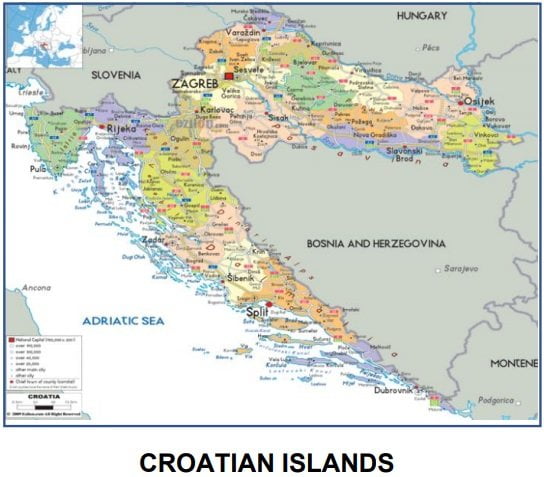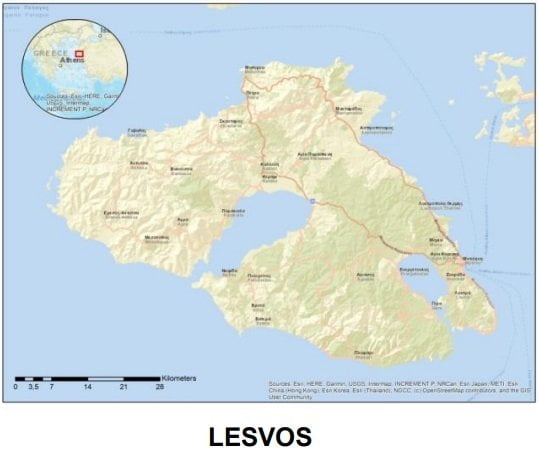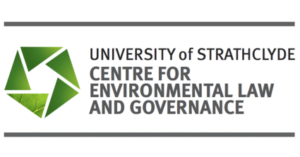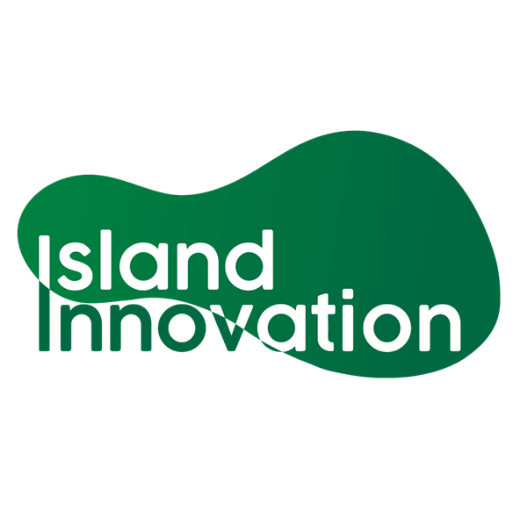The COVID-19 Island Insights Series is an initiative led by the Strathclyde Centre for Environmental Law & Governance (SCELG) and the Institute of Island Studies (IIS) at the University of Prince Edward Island (UPEI) in collaboration with Island Innovation. The series aims to bring together critical assessments of how specific islands around the world have performed during the COVID-19 pandemic and the extent to which their recovery plans are able to promote long term resilience and sustainability.
Every two weeks, Island Innovation will release COVID-19 Island Insights Series from two different island locations. This week we are focusing on Croatian islands and the Greek island of Lesvos. The piece on Croatian islands is authored by Ivana Marčeta Frlan and Nenad Starc and the piece on Lesvos by Efstratios Sentas and Thanasis Kizos.
CLICK HERE TO VIEW THE COVID-19 ISLAND INSIGHTS CROATIAN ISLANDS PDF

CLICK HERE TO VIEW THE COVID-19 ISLAND INSIGHTS LESVOS PDF

In Croatia, the islands were perceived initially by many as safe refuges from the virus, which resulted in a large influx of people from the mainland before travel restrictions were imposed. This changed almost overnight after cases of transmission started to occur on some islands, highlighting the other side of insularity: perception of a limited, risky space. The suspension of most transport connections during the lockdown revealed the dependence on the mainland particularly in health care on smaller islands. They proved too weak to handle the case numbers and medics on the mainland were too far away. Economically, although the impact on tourism was not as severe as some feared, the lack of seasonal workers who stayed on the mainland proved to be a particular challenge for the industry.
The COVID crisis has been labelled an opportunity in the political narrative, but the epidemiological measures prescribed on the national level have not allowed for island specificities so far. In the midst of the third COVID wave, the islanders are left to hope that it will pass before the first tourists come.
The piece on the Greek island of Lesvos reflects on a number of issues specific to the island. First, the pandemic has had a significant impact on the ongoing refugee crisis there. Lockdown measures have had a severe detrimental effect on the living conditions for those in the refugee camps, where overcrowding and lack of provisions makes compliance with restrictions effectively impossible, and questions remain in terms of the capacity of the island to accommodate the situation. Second, from an economic perspective, although the damage done to the tourism industry is expected to rebound there is concern around the lack of a sustainability strategy in order to avoid the development and risks of larger-scale mass tourism experienced elsewhere. Finally, the island’s ageing demographic is considered and whether the pandemic might have created an opportunity to attract younger people to the island through new economic models, including remote working.
The COVID-19 Island Insights Series will lead to a series of “thematic primers” aimed at assisting policy makers and wider island related stakeholders to encourage islands to move to a more resilient and sustainable future.
List of islands covered by the COVID-19 Island Insights Series (list subject to change):
- Åland Islands (Finland)
- Barbados
- Croatian Islands
- Egadi Islands (Italy)
- Grenada
- Guam (USA)
- Hawai’i (USA)
- Iceland
- Jamaica
- Lesvos (Greece)
- Malta
- Mauritius
- New Zealand
- Newfoundland (Canada)
- Okinawa (Japan)
- Prince Edward Island (Canada)
- Saint Helena (UK)
- Seychelles
- Shetland Islands, Scotland (UK)
- Solomon Islands
- Trinidad & Tobago
Click here to view the Strathclyde Centre for Environmental Law & Governance (SCELG) website.

Click here to view the University of Prince Edward Island (UPEI) website.

Click here to view the University of Strathclyde website.





